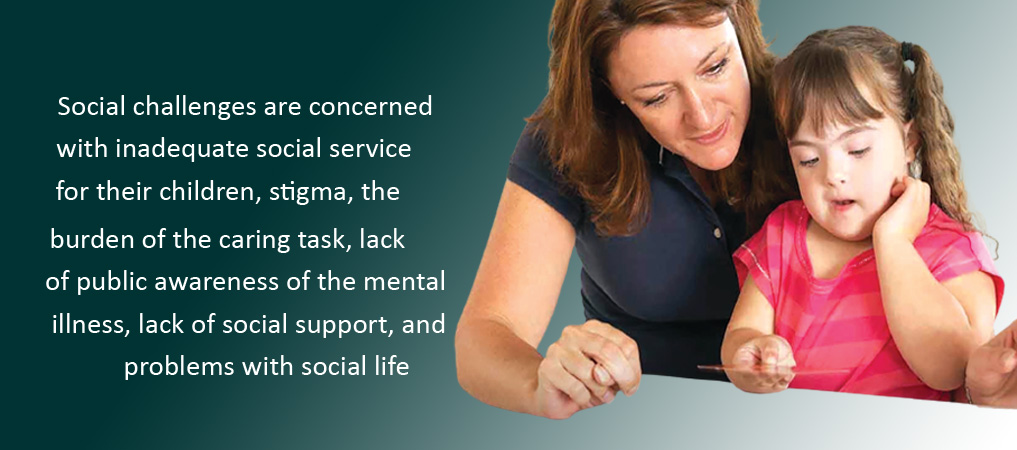Intellectual Disability Among Children

Pushpa Priya
Intellectual disability is a type of disability that results from limited mental capacity. The American Association On Intellectual and Development Disabilities (AAIDD) defines intellectual disability as the disability that occurs before the age of 18 years that causes limitations in intellectual ability, functioning, and adaptive behaviour of a person.
Limitations
These limitations include conceptual skills, practical adaptive skills, and social skills. Limited mental capacity makes learning very difficult. Therefore, learning new information and skills is challenging as such learning proceeds more slowly, and it is also difficult to apply the information practically and functionally. This article with reference discusses the causes of intellectual disabilities in children.
Intellectual disability causes include genetic disorders, infections, and other physical trauma. The causes of intellectual disability include conditions that occur before birth, during birth or after birth, during childhood years.one-third of people are victims of this disease due to unknown reasons.
According to the American Association on Intellectual Disabilities(AAID), there are different causes of disabilities that are listed below:
Genetic conditions- The most common cause of this disease is abnormal genes inherited to the child by parents, exposure to radiation during pregnancy. Missing or defective enzymes, chromosomal glitches can cause mental retardation. Genetic conditions that lead to intellectual disabilities are Down syndrome that is characterized by rough skin, allergic skin. Very small eyes, flat face, fatty body. Similarly, other genetic conditions causing mental retardation are Williams syndrome, Angelman syndrome, Prader-Willi syndrome.
Alcohol intake and toxic substance: Substances like smoking, alcohol, drugs, teratogenic medicine can adversely affect the growth of foetus that may cause either physical or intellectual disabilities in children.
Infections: Many infections like encephalitis, syphilis can lead to mental retardation. The brain development in foetus begins about 3 weeks after fertilisation. This is the time when it is highly susceptible to diseases. Infections like contracting rubella during the first trimester may lead to intellectual disabilities in children with other birth defects.
Environmental toxins: Ingestion of heavy metals like lead, mercury. And cadmium and exposure to radiations like X-rays, chemicals, etc can harm the brain development of babies.
Problems with childbirth: Malnourished women mostly give birth to premature babies who have low birth weight. During the birth process, the baby may suffer from temporary oxygen deprivation or birth injuries due to the use of forceps, vacuum birth that has a negative impact on babies causing many health problems. In addition to this, due to excessive use of pain killers, or given careless medical attention, or remains unattended during labour causes intellectual disabilities in children.
Problems after childbirth- babies may be susceptible to many illnesses like whooping cough, malaria, mumps, measles, and encephalitis can lead to intellectual disabilities as they start growing up. It is often shown a decline in mental ability in children who are physically, mentally, and sexually abused. Other factors like pollution in the environment, accidental ingestion of the poison, domestic violence, etc can cause mental disability. Similarly, acquired brain injuries due to traumatic brain disorders that impair their mental capacity.
Parents of differently able children face different challenges in the context of psychological, emotional, social, and economic. Psychological and emotional challenges suffered by such parents are often concerned with the present and future of their children. Worrying about the future life of their children is the most disturbing thought that some parents experienced due to the inability of the child to accomplish personal and social needs such as self-care and education.
Social Challenges
They showed these concerns when the child could not do certain developmental tasks expected at specific ages such as feeding, toileting, bathing, and dressing parents are also disturbed by the complexity of caring responsibilities that demanded being available most of the time to meet the needs of the child. They also experienced some communicative problems with their children due to their inability to talk.
Social challenges are concerned with inadequate social service for their children, stigma, the burden of the caring task, lack of public awareness of the mental illness, lack of social support, and problems with social life. the economic challenges are poverty, child care interfering with various income-generating activities in the family and extra expenses associated with a child's illness. As there is no specific treatment for this disease, it is quite challenging in terms of dealing with it. However, children with disabilities should be given special counselling along with their parents, physical therapy, meditation, special learning schools should be set up that help them to overcome their disabilities to some extent.
Married ladies should consult genetic counselling before conceiving a child, especially if they have a family history of genetic disorders.
They should refrain from having alcohol during pregnancy and should not take any medicine without a doctor's prescription as it may come with a devastating outcome. Women should be mentally, physically, and emotionally strong or immunized before they get pregnant.
(The writer teaches English at a college)
Recent News

Do not make expressions casting dout on election: EC
14 Apr, 2022
CM Bhatta says may New Year 2079 BS inspire positive thinking
14 Apr, 2022
Three new cases, 44 recoveries in 24 hours
14 Apr, 2022
689 climbers of 84 teams so far acquire permits for climbing various peaks this spring season
14 Apr, 2022
How the rising cost of living crisis is impacting Nepal
14 Apr, 2022
US military confirms an interstellar meteor collided with Earth
14 Apr, 2022
Valneva Covid vaccine approved for use in UK
14 Apr, 2022
Chair Prachanda highlights need of unity among Maoist, Communist forces
14 Apr, 2022
Ranbir Kapoor and Alia Bhatt: Bollywood toasts star couple on wedding
14 Apr, 2022
President Bhandari confers decorations (Photo Feature)
14 Apr, 2022










